Hearing problems affect communication, self-confidence, relationships, and the quality of life of millions of people worldwide. A common concern many people have is: Can hearing loss be reversed? Although medical technology and hearing devices have made tremendous progress, the answer is not always straightforward. Some types of hearing loss are reversible, while others are permanent but manageable. This article will explain how the ear works, why hearing declines, and what treatment and management options are available.
How Does the Ear Work?
To understand hearing loss, it’s important to first know how the ear works. The ear captures vibrations in the air and converts them into fluid waves inside the cochlea. Tiny hair cells (stereocilia) in the cochlea respond to these waves, turning them into electrical signals that are transmitted to the brain as sound. This entire process relies on three main parts of the ear working together:
Outer ear — collects sound waves and directs them into the ear canal.
The middle ear — contains the ossicles, which transmit vibrations of the eardrum to the inner ear.
Inner ear (cochlea) — converts vibrations into electrical signals, which are sent to the brain via the auditory nerve.
Why Does Hearing Decline? Can Hearing Loss Be Reversed?
Understanding Hearing Loss
Hearing loss happens when part of the auditory system (ear canal, eardrum, middle ear bones, cochlea, or auditory nerve) is damaged or impaired. The three main types are:
Conductive Hearing Loss
Caused when sound cannot travel through the outer or middle ear (due to earwax, fluid buildup, infection, or structural issues). This type is usually temporary and treatable.
Sensorineural Hearing Loss
Caused by damage to the tiny hair cells (stereocilia) inside the cochlea. Over time, these fragile hair cells break or deteriorate and do not regenerate. As they decrease, the brain receives fewer sound signals, resulting in hearing loss. This is the most common and generally permanent type.
Mixed Hearing Loss
A combination of conductive and sensorineural hearing loss.Identifying the type of hearing loss is the first step in determining whether it can be reversed or requires long-term management.
Can It Be Reversed?
Conductive hearing loss can often be reversed through earwax removal, medication, or minor surgery.
Sensorineural hearing loss cannot be completely cured, but modern devices like hearing aids and cochlear implants can significantly improve functional hearing.
What If Hearing Loss Cannot Be Cured?
Hearing loss can have a significant impact on daily life, but there are various ways to address it.
Medical Treatments – Ear infections can be treated with antibiotics, earwax can be cleared, and surgical options like tympanoplasty (eardrum repair) or ossiculoplasty (middle ear bone repair) can restore hearing in many conductive cases.
Emerging Technologies – Scientists are exploring stem cells, gene therapy, and regenerative medicine aimed at restoring inner ear hair cells. These are still experimental and not widely available.
Cochlear Implants – Recommended for severe to profound sensorineural hearing loss when hearing aids are insufficient. Cochlear implants bypass damaged hair cells and directly stimulate the auditory nerve, improving speech recognition and quality of life.
What Other Options Are Available?
For mild to moderate hearing loss, hearing aids and assistive devices are the most common and effective solutions. They amplify sound, enhance clarity, and improve daily communication.
Today, there are also affordable over-the-counter (OTC) options, allowing people with mild to moderate hearing loss to access clear hearing without seeing a doctor.
LINEE OTC hearing aids are not only affordable but also convenient to purchase and use without a prescription. The following two products are excellent for meeting the daily needs of those with mild to moderate hearing loss:
Linner Mars OTC Hearing Aids
These in-the-ear hearing aids are made to support adults with a moderate and mild hearing loss and are designed to support Bluetooth 5.0 technology, provide noise cancelling hearing aids suppression, customized settings via the LINNER smartphone app, and easy streaming technology.
They also have Focus Mode, which employs four microphones to isolate speech in a noisy environment such as a restaurant. The Linner Mars weighs very little and is comfortable, backed up by a charging case that gives up to 32 hours of activity. It also features the discreet design that the earbuds have, which makes it ideal for people who want a balance between style and functionality.

Linner Saturn OTC Hearing Aids
These are completely-in-canal (CIC) hearing aids and thus, discreet hearing aids. These fit very deeply in the ear canal and thus they are hardly noticeable. They offer a continuous listing up to 20 hours on a single charge, and the case complements to last up to 96 hours.
The Saturn has a newer and more advanced Onsemi™ chip to give clear sound, and also feedback shielding technology to dampen whistling. Although it lacks Bluetooth hearing aids, it is easy to use and very cost-effective, therefore making it an ideal device for first-time users or individuals who are discreet.
The two options bring out the fact that hearing aids will not be able to reverse the phenomenon of losing hearing abilities, but, nonetheless, will help restore users to their normal functioning level, enabling them to participate in conversations and listen to music, and enjoy social gatherings.

Preventing Further Hearing Damage
Although hearing loss may not be totally reversed, it is important to protect whatever remains. Prevention strategies include:
Avoiding loud places of work or socialization and using earplugs where necessary.
Safe listening levels of personal audio devices.
Treating chronic diseases that may interfere with hearing, such as diabetes and hypertension.
Going to routine hearing test, particularly when you observe a change in your hearing capability.
Hearing health and prevention of further deterioration rely on early detection and intervention.
Summary
So, can hearing loss be reversed? In most incidences of conductive hearing loss, the answer to this question is yes, it is possible to restore normal hearing. But in the most common hearing impairment, sensorineural hearing loss, reversal normally cannot happen. Rather, it can be medically managed with medical treatments, hearing aids like the Linner Mars OTC Hearing Aids, discreet options like the Linner Saturn Best OTC Hearing Aids, or cochlear implants that can bring life-altering changes.
Although not every type of hearing loss is reversible, there are strong solutions that can be taken to enable people to get back in the world, maintain their independence, and improve their way of life. It is always possible that with more research and advancements in technology, there could be even more potential for those already asking: Can hearing loss be reversed?


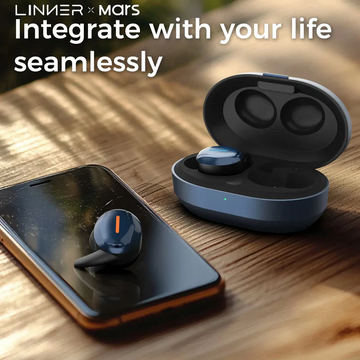
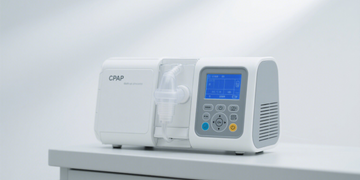
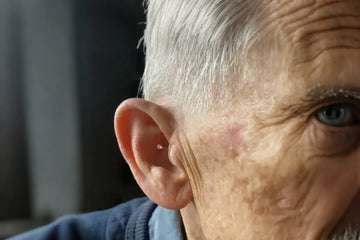
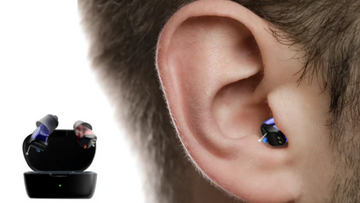
![Linner Mercury Clarity OTC Hearing Aids [FSA & HSA Eligible] Linner](http://www.linnerlife.com/cdn/shop/files/Linner-Mercury-Clarity-OTC-Hearing-Aids-_FSA-_-HSA-Eligible_-Linner-110038953.webp?v=1725853434&width=360)
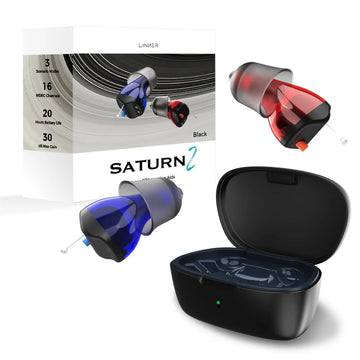
![Linner Mars OTC Hearing Aids [FSA & HSA Eligible] Linner](http://www.linnerlife.com/cdn/shop/files/Linner-Mars-OTC-Hearing-Aids-_FSA-_-HSA-Eligible_-Linner-110039213.webp?v=1725865495&width=360)
